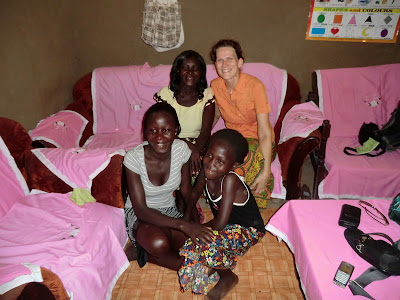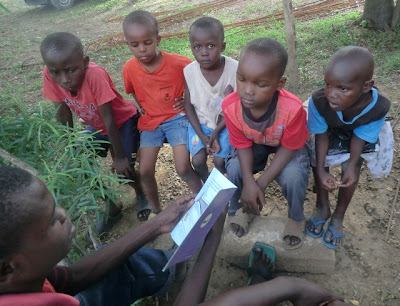When I met the Board Members for my project in October, they suggested that we have all of our students, in 6th grade & above, write a letter about themselves. These letters are now starting to filter in and I was really moved by one today. I am reminded, time and again, how much most of my students struggle to keep their head above water in a tough education system. This young man inspires me to keep going, even when it seems like we're not making as much progress as I'd like.
13-Dec-2012
Dear HOPE Project Board members,How are you? I hope you are fine. I am a 16 year old boy. I am honest, respectful and punctual. I learn in a nearby school called St. Charles Lwanga Secondary School. I am in form two but I will be in form three next year. We are three children in our family and I am the last born. My hobbies are playing football and visiting friends but I also like listening to music.
I hope to be a doctor in future because I like to know more about the human body and I also like biology. I also hope to increase my performance both in grade and marks because I have been reducing in performance this year. I performed very well in form one term three because in form one the things which we had been taught was not so much. But since I entered in form two, I have been dropping slightly in performance, one of the reasons for this was because the syllabus was increasing in content. In form two term three I also dropped in performance, I think this is because of the term being short and also there was a teacher’s strike which was on for three weeks. When the teachers returned to school for the third term, they were rushing to cover and finish the syllabus. We had to work extra hard in order to cover what we did not cover during the strike and to complete the syllabus. There was also need to spare some time for revising and writing notes in subjects which we write on our own. The challenges which I have is that in my time table, I have one subject at 3:30 am but I don’t always wake up to study the subject. Another challenge is that I lack a light which is good for my health in which I can use it to study at home because the one I am using produces a lot of smoke and soot. Another challenge is that I lack a table in which my knees can go under it so that I can study in a good posture. What I have to change to reach my goals is lazyness in order for me to wake up at 3:30 am and study my morning subject. Another change is to move to a house having electricity so that I can read and study comfortable without any health effect.
I will like the hope project to continue helping in paying my school fees, buying me a new pair of uniform. I thank HOPE project for the assistance they have given me like paying for my school fees, buying me pairs of uniform and offering us with revision textbooks and a place for studying. I am so grateful for HOPE project. May God bless you.
Wishing you and our world Peace this holiday season.Amani (Note from Mary: His name means peace in Swahili)




































